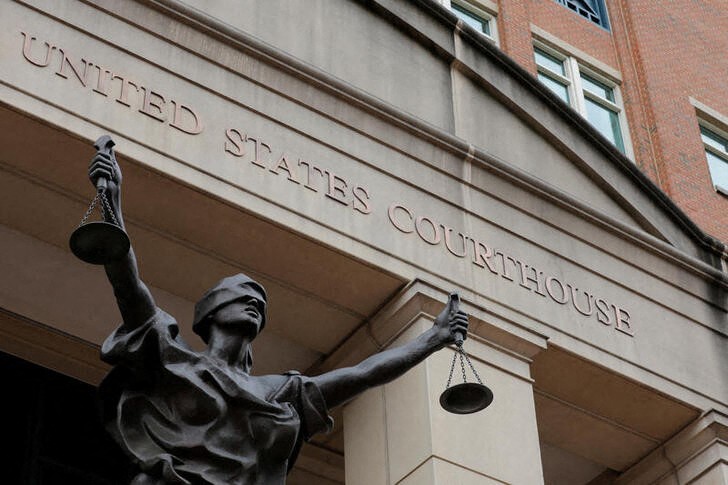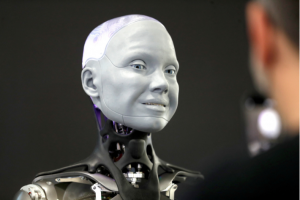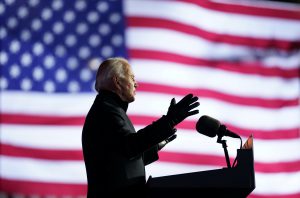In an audacious attempt to reverse a $26.4 million judgement over intellectual property theft, a China-based glass company argued in a US court it should not have to pay damages, essentially because it refused to cooperate with the investigation.
The hearing was the latest chapter in a years-long case that alleges Jiangsu TieMao Glass Company (JTMG) and its officers paid a former PPG Industries engineer to steal information on the US-based glass giant’s cutting-edge aerospace Opticor technology.
The theft came to light in 2015 when PPG discovered a former employee stole and sold the valuable trade secrets to JTMG, a key competitor. PPG alleged in court filings that JTMG funneled tens of thousands of dollars to the employee via a JTMG officer’s bank account.
The FBI subsequently arrested and charged Thomas Rukavina, who previously worked for PPG on the Opticor technology.
PPG also filed a civil action against JTMG and two of its officers, general chairman Benhua Wu and purchasing agent Mei Zhang, who served as Rukavina’s handler by helping sneak money from JTMG company accounts to Rukavina’s personal account.
PPG filed suit in 2015, but JTMG, Wu and Zhang did not respond to any legal filings, and eventually lost the case by default in 2021.
Seeking to reverse the judgment, the lawyer for JTMG argued on Tuesday that since PPG was not able to assess how much JTMG had benefitted from the theft, it was therefore impossible to determine how much the damages should be, and so the $26.4 million figure had no basis in law.
Hearing this argument, US District Judge Mark Hornak asked somewhat incredulously: “Since your client chose not to participate, didn’t do anything to cooperate and only showed up when they were getting hammered on default judgment, on what grounds do they have a basis to object? Does your silence protect you?”
ALSO IN AF: US Jails Ex-Coca-Cola Chemist for China Trade Secret Theft
Judge Questions JTMG Claim of No Benefit
JTMG’s legal representative further claimed the company did not actually benefit from the theft as it had never used it.
“You did make use of it,” retorted Hornak. “You took the designs, you sought out a manufacturer for the designs, you built a factory, you hired employees” to use “the trade secrets that you stole. PPG’s own drawings were submitted to a manufacturer. Don’t all those things clearly show those things were being used?”
PPG was not able to assess how much JTMG benefited from the theft as the company would not provide documents as part of pretrial discovery.
The judge went on to remind the attorney that under US law, when one side does not respond to legal action and are found in default, the court’s view is that they have admitted to everything by not disputing any of it.
“When you do nothing, you admit everything that has been alleged against you,” said Hornak. “Your client admits to stealing the secrets, with all those things admitted, you get to walk away because you won’t turn over the information to assess damages?”
The case revolves around allegations JTMG sought to steal an array of PPG proprietary transparencies-related manufacturing processes, in particular those related to Opticor.
JTMG was not immediately available for comment. Meanwhile, a PPG spokesperson told Asia Financial: “As a matter of policy, we do not comment on ongoing legal matters.”
Starting in 2013, PPG alleged that the two JTMG officers colluded with Rukavina to steal proprietary technology and information. Over the two-and-a-half year period, the defendants allegedly paid Rukavina over $100,000.
Rukavina committed suicide shortly after his arrest, but PPG continued to pursue JTMG, Zhang and Wu, even hiring a professional legal notice company in China to officially serve notice of the legal action to JTMG and Wu. Zhang was based in California and was served notice there.
JTMG, Wu and Zhang all ignored legal motions for years, so in 2019 PPG moved for default judgment. The court agreed and ordered $26.4 million in damages in June of 2021.
The company’s appeal against the damages payment is continuing.
• Neal McGrath
READ MORE:
Crypto Thieves Lurk on Social Media to Steal NFTs – ST
Thieves Steal 500-Tonne Bridge in India – The Hindu
US Professor Convicted Over Concealing Work for China
























